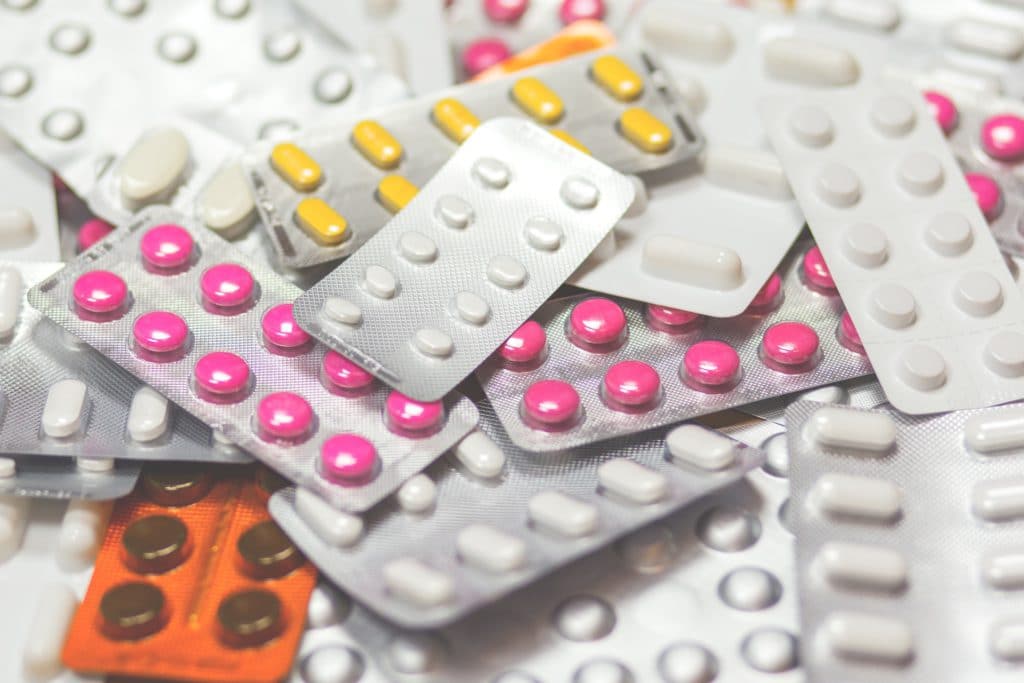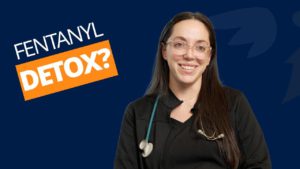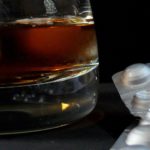
Breaking Chains with Summer House: Top Drug Addiction Treatment Center in Miami
As the shadows of drug addiction continue to grip many lives, finding the right treatment center becomes a beacon of hope. Summer House, located in
We want to make your stay here at the Summer House Detox Center as comfortable as possible. We provide a very relaxed environment where we administer the medication and supervise you as you go through withdrawal effects.
Our facility will be a home away from home where you can safely and comfortably begin the process of becoming sober. Summer House provides comfortable services and amenities during your stay.
Contact Us

Seek help today from Miami’s premiere private in-patient drug and alcohol detox center.
Summer House Detox Center will be by your side during the important but difficult step of detoxification, which includes supervised medicated treatments.
Our medical staff and therapists will guide you through the road of recovery that is tailored to your addiction. Everyone is special and will be treated with the respect and dignity you deserve as you treat your disease.
Start fighting back today!
Learn

We gather valuable information needed to determine and provide the best level of care for you.

May 19, 2020
Withdrawing from alcohol can be extremely unpleasant, which is why many people who struggle with alcohol addiction may feel hesitant or scared about stopping alcohol use and getting help. In severe cases, alcohol withdrawal can be dangerous and increase the risk of seizures, heart problems, and death. However, today’s alcohol detox treatments are far safer and more comfortable than ever because they involve the use of medications that relieve and reduce symptoms.
Here’s more about the medications used in alcohol treatment, and where you can find an alcohol detox center that uses these interventions to help people experience a safe and comfortable recovery from alcohol addiction.
Alcohol rehab centers use a wide range of therapies to treat every component of alcohol use disorder. Alcohol detox and behavioral therapies are commonly used to treat alcohol dependence and addiction. Medications can be used in alcohol detox to manage withdrawal symptoms, and in alcohol rehab programs to reduce substance use and prevent relapse.
Alcohol withdrawal syndrome can last up to an average of 10 days, which is a relatively long time to cope with the illness and symptoms experienced during this period. Many times, symptoms of alcohol withdrawal can be so persistent and severe that some people start drinking again just to find relief. Medications used in alcohol detox can minimize certain symptoms to help people stay on track with their treatment programs and achieve lasting sobriety.
The use of medications to promote abstinence from alcohol is known as medication-assisted treatment (MAT). MAT combines medications with counseling and behavioral therapies to treat substance use disorders and prevent relapse. MAT is also commonly used to treat opioid use disorder and prevent opioid overdose.
Medications used in alcohol rehab offer a countless number of benefits for those in recovery from alcohol addiction. First, medications can reduce withdrawal symptoms during alcohol detox to help patients feel better and less sick. Certain medications can also prevent the onset of serious withdrawal symptoms such as seizures and hallucinations.
Second, medications can reduce the desire to drink alcohol and keep patients motivated about staying abstinent. Medications can also treat anxiety, depression, and other mental health disorders that commonly occur alongside alcohol use disorder. Leaving co-occurring disorders untreated increases the risk for relapse later on, as some people may drink alcohol in an effort to find relief from the symptoms of their mental illness.
MAT is proven clinically effective at treating alcohol use disorder. It is shown to improve patient survival and treatment retention rates, increase patients’ ability to gain and maintain employment, and improve birth outcomes in patients who are pregnant. MAT is also shown to reduce patients’ risk of contracting HIV and hepatitis C by reducing the risk of relapse.
The medications used in alcohol detox will vary from patient to patient based on factors such as the severity of alcohol dependence and the type of withdrawal symptoms being experienced. For example, those in recovery who only experience one or two symptoms such as headaches and nausea may be given over-the-counter medicines to control their symptoms. Those at risk for seizures, however, may be prescribed benzodiazepines.
Below are some medications that may be used in your alcohol detox program:
Benzodiazepines are central nervous system depressants that interact with many of the same brain and body receptors as alcohol. When used in alcohol detox, benzodiazepines can prevent the body from experiencing a “cold turkey” effect for this very reason. Benzodiazepines can serve as effective substitutes for alcohol and are proven to reduce the severity of withdrawal and the incidence of seizures and delirium tremens—a severe form of alcohol withdrawal characterized by seizures, delirium, and hallucinations.
Benzodiazepines are currently considered the safest, most effective and preferred treatment for alcohol withdrawal. The best-studied benzodiazepines for use in alcohol detox are diazepam, chlordiazepoxide, and lorazepam.
Diazepam and chlordiazepoxide are long-acting medications that produce effects for up to several days and are found to provide a smooth course of treatment without allowing alcohol withdrawal symptoms to surface. Lorazepam is a short-acting medication to be used in patients with severe liver dysfunction due to the way it has no active metabolites that would otherwise greatly interfere with liver function.
Anticonvulsants are alternatives to benzodiazepines shown effective at preventing seizures, reducing alcohol cravings, and treating mood disorders like anxiety and depression. Anticonvulsants also produce less sedation and carry no abuse potential like benzodiazepines. Carbamazepine, Valproic acid, and gabapentin are anticonvulsants most commonly used to treat alcohol dependence.
Clonidine and propranolol are adrenergic medicines that reduce heart rate and blood pressure and improve many other symptoms of alcohol withdrawal. These medications do not prevent seizures or delirium tremens and are often combined with benzodiazepines for this reason. Adrenergic medications are commonly used in outpatient settings to treat mild cases of alcohol withdrawal.
Baclofen acts on GABA pathways to reduce symptoms of alcohol withdrawal—specifically alcohol cravings. GABA is a neurotransmitter that plays a major role in central nervous function. Alcohol abuse interferes with the way GABA is produced and used by the body, but medications like baclofen and benzodiazepines interact with GABA in ways that effectively counteract symptoms of alcohol withdrawal.
Each of the medications used in MAT for alcohol use disorder works in its own unique way to help patients stay abstinent. MAT is usually ideal for those in recovery from severe alcohol use disorder and who have tried other alcohol rehab treatments in the past without lasting success.
Here are the medications used in MAT programs:
Disulfiram is an alcohol sensitizing medication that produces a range of unpleasant effects within 10 to 30 minutes of drinking alcohol. This medication is used to motivate patients against relapsing and drinking alcohol. When used with alcohol, disulfiram produces effects including chest pain, hyperventilation, blurred vision, weakness, nausea, and vomiting. Disulfiram is ideal for patients who want an additional incentive to stay abstinent, and for those who anticipate being in situations that could lead to drinking, such as holiday parties and family gatherings.
Acamprosate reduces the desire to drink alcohol and minimizes symptoms of alcohol withdrawal to help patients stay abstinent. This medication can be used safely with benzodiazepines and may be started during an alcohol detox program. Acamprosate reaches full effectiveness within 5 to 8 days and can be continued for as long as needed, including during and after a relapse.
Naltrexone blocks the euphoric effects produced by alcohol and reduces alcohol cravings. This medication motivates patients to remain abstinent due to the way it suppresses feelings of pleasure when alcohol is consumed. Naltrexone can be highly beneficial for patients who abuse opioids in addition to alcohol since this medication also acts on opioid receptors to reduce drug cravings and block euphoric effects.
Summer House offers alcohol detox in West Palm Beach, Florida to offer patients a relaxing, comfortable recovery from alcohol addiction. Our alcohol detox treatments involve the use of FDA-approved medications that effectively relieve withdrawal symptoms and reduce the risk of withdrawal-related complications. Patients who receive alcohol detox at Summer House can benefit from luxury amenities including yoga, Tai Chi, daily massage therapy, jacuzzi, and many more.
Contact us today at 800-719-1090 to learn more about our alcohol detox program or visit us at 13550 Memorial Highway Miami, FL 33161. We are open 24 hours a day, 7 days a week.

As the shadows of drug addiction continue to grip many lives, finding the right treatment center becomes a beacon of hope. Summer House, located in

Are you looking for a safe and compassionate drug detox center in Kendale Lakes, Florida? If so, look no further than Summer House Detox Center.

Are you looking to escape addiction in Homestead, Florida? Summer House Detox Center is one of the best detox centers in the area. Located just
For immediate assistance, please call our Admissions Specialists at 800-719-1090.


Speak With A Qualified Addiction Specialist 24/7